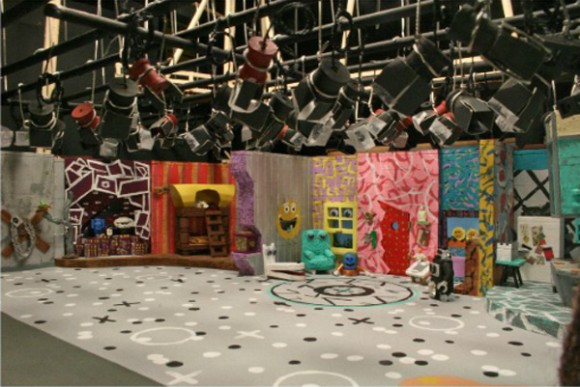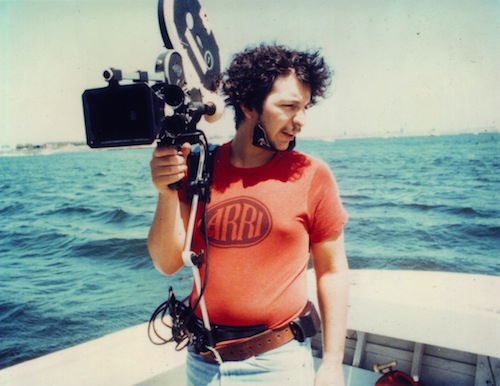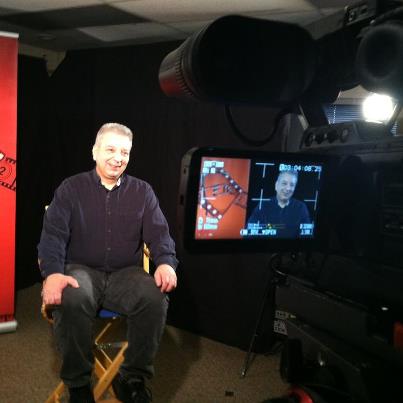How the Film Industry has Evolved, Yet Will Never Change
The film industry has witnessed a number of transformations – from the invention of the motion-picture camera in 1888, to James Cameron’s groundbreaking visual effects used in Avatar in 2009. Although technology and equipment have changed over time, the great minds within the industry believe that the characteristics necessary for a successful career remain steadfast.
Alex Aurichio, an experienced director of photography, is an award winning cinematographer with over 30 years in the film and television industries. He has worked as a cameraman on a wide variety of projects, including news productions , reality television, and children’s T.V. shows. The straightforward nature of news reporting, the new structure of reality television, and the creative brainstorming and portrayal of the children’s T.V. show Pee Wee’s Playhouse provide Aurichio with an all-encompassing resume. 
As a film major and animation minor at Pratt Institute, combined with his 30 years of industry experience, Mr. Aurichio has been able to flourish in both worlds effortlessly. Being part of the industry during a major technical renaissance has given Alex a great appreciation for both the past and future.
“Back when I was in school (in the ‘70s) you had to do everything manually… it’s good to have those skills because everything is so automatic today and anybody can pretty much turn on a camera and get a decent image,” says Aurichio.
What exactly had to be done manually? Alex worked as an Assistant Cameraman throughout his career. Typically Assistant Cameramen – known just as an AC – would have to build the camera, load it (with actual film), and measure the distance between the talent and the camera in order to be able to judge by eye that someone was in focus or not. These primitive duties were tedious but forced the operators to have an in-depth appreciation of the camera’s abilities and limitations. “Building” a camera is no longer necessary because tapes and memory cards – for the most part – have surpassed the use of film, and the focus can now be adjusted by the camera without te need to measure distances. The digital era has pushed these primitive, yet valuable techniques aside.
 In case you were wondering, yes, film cameras actually had to be “built”, as Aurichio described it. When an assistant cameraman would go checkout a camera, before he/she took it out of the store, everything from the lenses, extensions, tripod, etc. had to be put together and examined for quality. Also, the AC would have to test the viewfinders and the tape magazines to avoid focus or film feeding malfunctions during a shoot. If one camera part was unserviceable, the whole shoot could potentially be a disaster.
In case you were wondering, yes, film cameras actually had to be “built”, as Aurichio described it. When an assistant cameraman would go checkout a camera, before he/she took it out of the store, everything from the lenses, extensions, tripod, etc. had to be put together and examined for quality. Also, the AC would have to test the viewfinders and the tape magazines to avoid focus or film feeding malfunctions during a shoot. If one camera part was unserviceable, the whole shoot could potentially be a disaster.
“You want to check all that stuff before you actually get on the set … you don’t want to hear ‘Why doesn’t this work? Why doesn’t that work? … you just always want to be there for your cameraman and be their best buddy and mom and dad,” said a laughing Aurichio.
But now that the technology in the film industry has drastically changed, Aurichio believes one of the reasons there is a lot less visually interesting programming is because the digital age has made cameras so much easier to operate – deluding the “Art” of camera operation. We now rely less on the artistic eye of the operator and more on the automation of the camera. This simplification of technology has given rise to the advent of reality TV, which has spurned the traditional dramatic and narrative structures of storytelling on television.
According to Aurichio, the growth in technology has facilitated this new wave of reality television because it has enabled greater accessibility to the modern, less expensive equipment at a and needs less qualified / cheaper operators. With more people able to use the equipment, more people are ultimately granted greater entry into the business. But quantity does not insinuate quality.
“The shift from film to video, in a sense, has dumbed-down production … I’m talking more about the ideas and projects … a lot of people can pitch ideas and if you’re a good salesman you can get [your idea] made, but it doesn’t necessarily mean it’s of high value,” he said candidly.

Despite the prevalence of the undesirable reality shows, there are still quality television shows out there, which should motivate young people breaking into the business. Aurichio believes it was crucial that he has sustained his best assets throughout the years, allowing him to endure a long and successful career.
Assets such as being able to adapt to change, being able to perform various jobs, while still focusing on the main goal of becoming a cinematographer and maintaining his artistry and creativity, has defined Aurichio’s success. He hopes that he can help young students and novices to preserve their passions and develop their creativity to help better the industry.
“No matter how the technology changes, try and keep those same values and creative processes. The technology might change, but our creative processes do not,” Aurichio said confidently.
One can be tremendously creative, but the passion mustn’t be dormant or else it will be difficult to achieve success. The film business doesn’t leave its subjects with a lot of free time; it requires long hours of tedious work often at grueling pace. However, this should not discourage anyone from pursuing such a career because it gets much easier as you develop more relationships.
“Learn how to deal with people, whether they are above you or below you and learn how to treat them well. You have to be a people person in order to further your career in this business,” Aurichio expressed. “Because it’s not always what you know, it’s sometimes who you know.”
But be sure to make the right impression, because nobody wants to deal with a reality TV drama queen.



